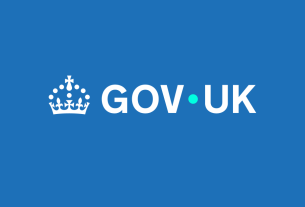The Digital Services Act (DSA) regulates online services such as social media, marketplaces, app stores, and online travel and accommodation services, for example, Shein, Instagram, X, TikTok, LinkedIn and Booking.com. Its main goal is to create a safer digital space in which your fundamental rights are protected.
How the DSA positively impacts your life
- Control over your online experience: if your content or account is removed or suspended, platforms must explain why this has been done – they can no longer limit the visibility of your content without informing you. If you disagree with their decision, you can appeal it using the platform’s internal system, or through out-of-court settlement bodies, which help resolve disputes with platforms in a faster and cheaper way than going to court.
- Illegal content flagging: you can report illegal content, goods or services via an easy-to-use mechanism directly on the platforms. They must inform you of their decision on your notification and possibilities to appeal.
- Feed options: you have control over what you see online. On large platforms with over 45 million users in the EU, you can now use non-personalised feeds. This way, you decide whether to see content based on the algorithm’s suggestions or other criteria, such as the chronological order. This helps to avoid addictive content and ensures that you see only the content you want to interact with.
- Ad transparency: the DSA introduced transparency requirements for advertising, making sure ads are clearly labelled as such and include information on who is placing them and why you are seeing them. It also prohibits platforms from showing you ads based on sensitive data, such as data on sexual orientation, religion or race, and introduces a complete ban on showing targeted advertising to children.
- Manipulative tactics: dark patterns, which are deceptive practices that can lead you into choices you would not otherwise make, are explicitly banned. For instance, when purchasing extras for a flight, you might see a huge ‘yes’ button, while the ‘no’ option is barely noticeable – platforms must now ensure both options are equally visible and accessible.
- Know your trader: marketplaces must verify who the sellers are and display their contact information, so you have clear information about whom you’re buying goods or services from.
How the DSA is enforced
The DSA entered into force in August 2023 for very large online platforms (VLOPs) and very large online search engines (VLOSEs) – those with more than 45 million users in the EU every month. Since February 2024, it applies to all other platforms in the European Union, except for micro and small enterprises.
Enforcement of the DSA is shared between national authorities and the European Commission.
National authorities, called Digital Services Coordinators, supervise and enforce compliance with the DSA in their Member States. If you want to file a complaint about a violation of the DSA, you can contact the Digital Services Coordinator of your Member State.
The Commission is the only authority responsible for ensuring that large platforms comply with the strictest rules, given the significant risks they pose due to their high user numbers in the EU. It maintains ongoing contact with these platforms to support and supervise their compliance with the DSA rules and to create a safer online space together.
If the Commission suspects an infringement of the DSA based on its monitoring or information from reliable sources, including citizens, it can open investigations and request information, conduct interviews and carry out inspections of premises.
Recent investigations under the DSA
The Commission has already opened several investigations against large platforms to verify their compliance with the DSA. In some cases, these already led to remarkable change:
- TikTok: in 2024, TikTok introduced the Rewards programme, but later withdrew it after the EU launched an investigation into concerns about its potentially addictive design, especially for children.
- AliExpress: while the platform is still under investigation for not properly assessing and minimising the spread of harmful and illegal products, it has made several commitments to comply with the DSA. These include enhancing the transparency of its advertising and recommender systems and improving its mechanism to flag illegal content.
Other investigations are ongoing. For example:
- Temu: the EU suspects Temu is not properly assessing and reducing risks associated with the sale of illegal products, the potentially addictive design of the service, the recommendation systems used for purchases, and data access for researchers. The preliminary findings on a part of the investigation indicated that Temu violates the DSA obligations by not thoroughly checking the risks of illegal products appearing in its marketplace.
- Facebook and Instagram: the EU is investigating Facebook and Instagram for not properly applying the DSA rules to safeguard minors online. In particular, the EU is inquiring whether the features and algorithms of both platforms might encourage addictive behaviours in children and lead them down endless content paths, known as ‘rabbit-hole effects’.
Large platforms that do not comply with the DSA may face fines of up to 6% of their global annual turnover and will be required to take corrective measures. The Commission will continue to monitor platforms’ compliance and will take action when necessary.
For more information
The impact of the Digital Services Act on digital platforms


